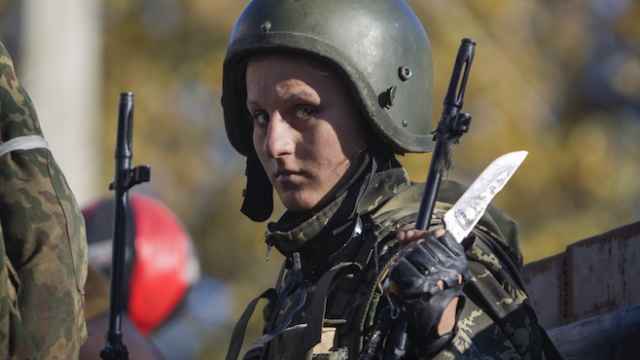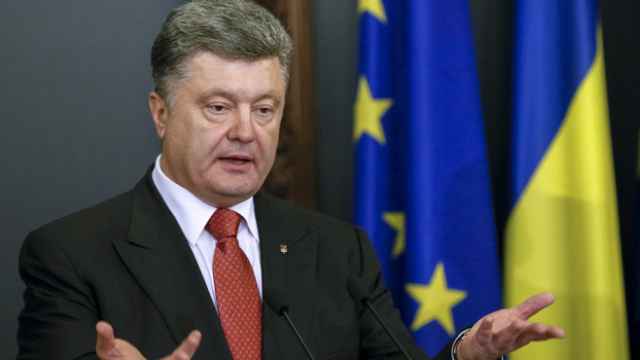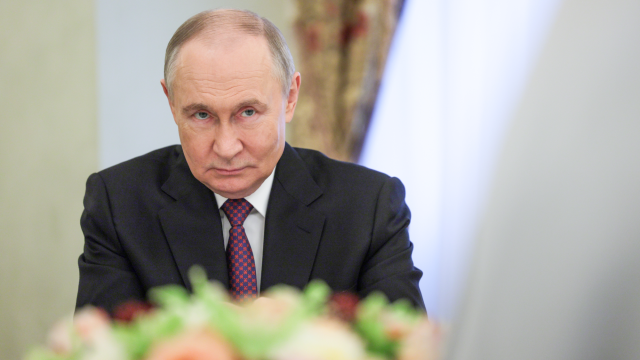BERLIN — Ukrainian President Petro Poroshenko called the Minsk agreement a "pseudo-cease-fire" in an interview with German broadcaster ZDF.
Despite Kiev and Moscow agreeing to a truce in February, shooting has continued around the coastal town of Shyrokyne, near the strategic port city of Mariupol.
Poroshenko and German Chancellor Angela Merkel held talks in Berlin on Wednesday. Ahead of their meeting, Merkel said the Minsk agreement was still being violated on a regular basis.
On Wednesday, U.S. Secretary of State John Kerry called for a halt to fighting around the Ukrainian coastal town of Shyrokyne as NATO backed his demand that Russia fully implement a Ukraine ceasefire agreement.
Excerpts of the interview released in advance showed that when asked about whether the port city of Mariupol was under threat from Russian separatists who wanted to create a land corridor to Crimea, Poroshenko said: "Clearly."
Russia denies it is providing troops or arms to pro-Russian rebels who launched a separatist uprising in April of last year. It accuses Kiev of breaching the February cease-fire agreement.
Capture of Mariupol port could help separatists cement a hold on eastern Ukraine's Luhansk and Donetsk regions. Kiev fears it could also provide the pivot for an advance along Ukraine's south coast to link up with Crimea, annexed by Russia last March.
A Message from The Moscow Times:
Dear readers,
We are facing unprecedented challenges. Russia's Prosecutor General's Office has designated The Moscow Times as an "undesirable" organization, criminalizing our work and putting our staff at risk of prosecution. This follows our earlier unjust labeling as a "foreign agent."
These actions are direct attempts to silence independent journalism in Russia. The authorities claim our work "discredits the decisions of the Russian leadership." We see things differently: we strive to provide accurate, unbiased reporting on Russia.
We, the journalists of The Moscow Times, refuse to be silenced. But to continue our work, we need your help.
Your support, no matter how small, makes a world of difference. If you can, please support us monthly starting from just $2. It's quick to set up, and every contribution makes a significant impact.
By supporting The Moscow Times, you're defending open, independent journalism in the face of repression. Thank you for standing with us.
Remind me later.





